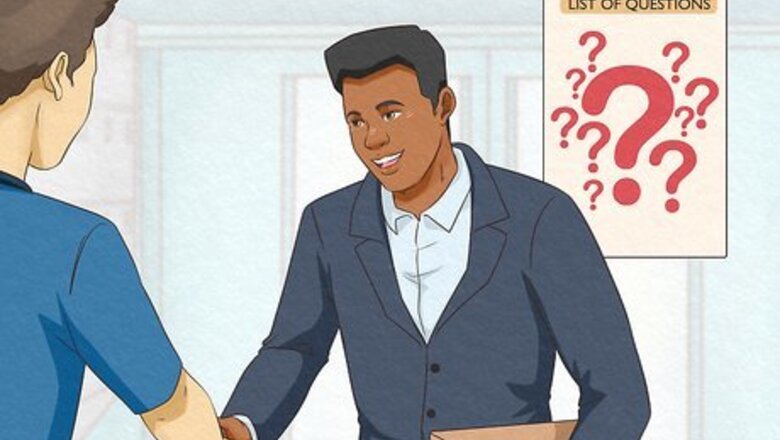
views
- Prepare a few questions and talking points beforehand so you can avoid lulls in the conversation and make a new connection.
- Dress appropriately for the context, and when you get there, smile, stand up straight, keep your head up, and make eye contact with the other person.
- Practice active listening by nodding along and restating what the other person says.
How to Make a Good First Impression
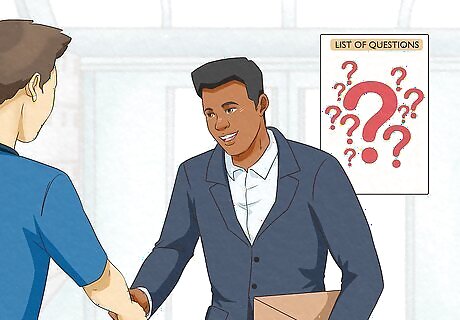
Prepare questions and talking points. Preparing a few topics or questions before meeting someone new can help keep you on track and avoid lulls in the conversation. Think about who you’re meeting and what you’d like to get out of the interaction. If you’d like to make a potential friend think you’re fun, prepare a few hilarious stories you could weave into conversation. Think about what parts of your environment you could point out. At a party, you could ask if the food is good. Before a job interview, think of a few questions you could ask about the company or the person you’re interviewing with. If you’re interviewing someone or meeting someone you admire, try to ask unique questions that dig deeper than what most people tend to ask.
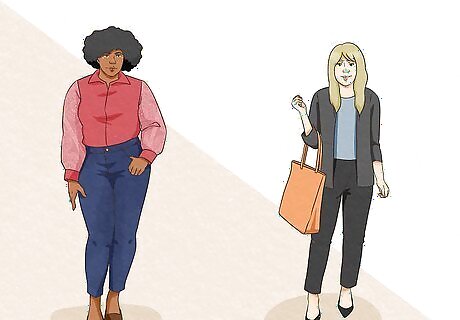
Dress appropriately for the occasion. People make their first judgments within 1/10 of a second. One of the first things people see is how you dress. Choose an outfit based on the context of the meeting and how comfortable you’ll feel wearing it. When you’re on a first date, matchmaker and dating expert Maria Avgitidis recommends “wearing something that you definitely feel comfortable in, that makes you feel good” and “look good.” In professional or academic settings, stick to clean understated clothes without holes, wrinkles, or tears.

Arrive on time or a few minutes early. When you tell someone you’ll meet them at a certain time, you’re making them a promise. Being punctual can show the other person you’re dependable, disciplined, and respectful. Leave at least 5 minutes early to allow for traffic and other obstacles out of your control. If you’re going to an interview or a first date, consider arriving 10 to 15 minutes early to relax and center yourself. If you’re meeting a potential friend or a colleague, come to an agreement with them about what time and place work best for you both.
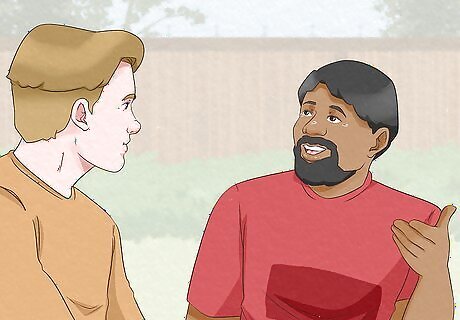
Make eye contact with the other person. Matchmaker and dating expert Maria Avgitidis says that “A smile really does go a long way. It tells people that you're friendly.” Establish eye contact right before you begin talking. When listening to the other person, try to maintain eye contact for about 4 to 5 seconds at a time. Eye contact is also an important way to connect and communicate non-verbally with the other person. Try to maintain eye contact 50% of the time while speaking and 70% of the time while listening.
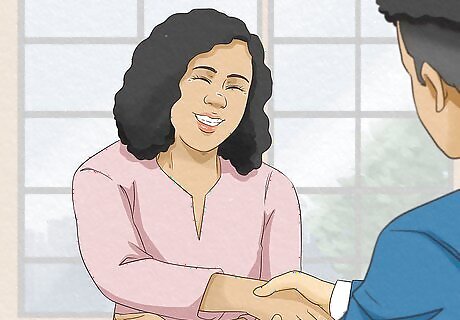
Remember to smile. Smiling can make you seem courteous, likable, and competent. However, don’t try to fake a smile—other people can detect when you do. Instead, visualize something that makes you happy to channel positive energy into the present moment. Smiling can also help fight off stress and lift your mood. If you’re meeting a job interviewer, try to be bold and introduce yourself first.

Use body language to appear open and confident. Your body language can communicate how comfortable you feel in a situation. To look open and confident, keep your head up, stand up straight, and keep your hands visible. Matchmaker and dating expert Maria Avgitidis says that “sometimes we like someone and we become anxious… we do subconscious things to close off [like] cross our arms [or] turn away.” Instead, face the other person and let your arms rest at your sides. When meeting a client or someone in a professional setting, set the tone of the meeting by giving them a strong handshake. Try to avoid engaging in nervous habits like biting your nails.
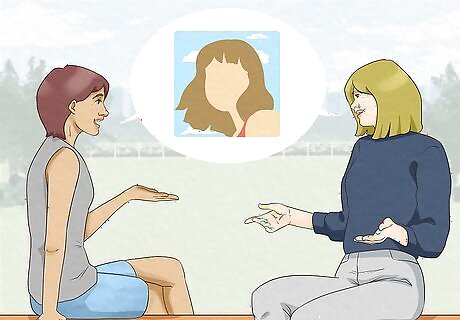
Use small talk to find something in common. Short, casual interactions can make you and the other person happier and more likely to feel like you belong. Try to select topics that are tailored to your conversation partner—the more information you can find out about them, the more you have to talk about. For example, if they say they went to a Taylor Swift concert last weekend, you could ask “What was your favorite part of the show?” or “I love her! What’s your favorite album?” If they’re distracted by something interesting, talk about it. Go with the flow and share whatever they are interested in together.

Be your authentic self. Whether you’re going on a date, interviewing for a new job, or meeting a potential new friend, you have so much to bring to the table. Talk about the things you like, and try to avoid pretending to be someone else. In a professional setting, try to share something low-stakes with the other person, like what you did last weekend or a new hobby you’re into.
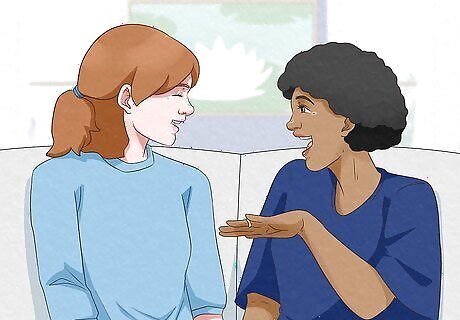
Be positive and empathetic. A positive attitude can reduce your stress and improve your relationships with others. Be empathetic when another person shares something personal with you, allow yourself to laugh during difficult times, and try to chase away negative self-talk that may make you doubt yourself. If possible, avoid having to make first impressions when you are feeling low—a negative mood could make others view you as unfriendly.
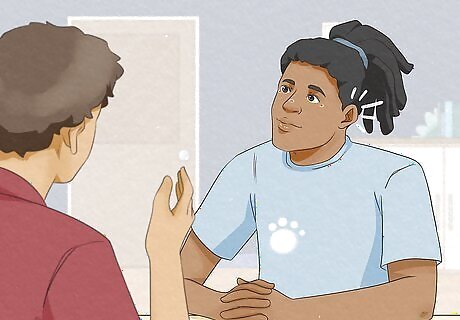
Listen attentively to the other person. Most people love to talk about themselves, and actively listening can make them feel heard, understood, and respected. When someone’s talking, nod, restate what they’re saying, and try to avoid interrupting or finishing their sentences. To restate, say something like, “What happened after Josh called you back?” or “What were you thinking when she apologized?” Ask open-ended questions that will allow them to elaborate on their thoughts, like “What happened when you moved back in with him?” Conversations are all about give and take. If the other person starts to look distracted or bored, you might be talking too much—try asking them a question.
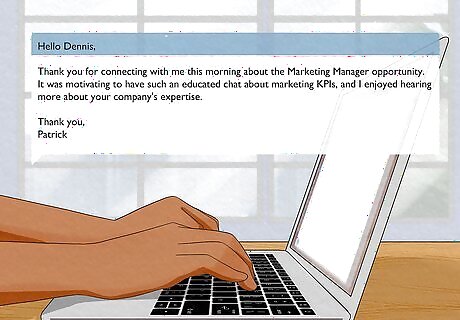
Follow up with them after you meet. If you make a great connection with someone, ask to exchange contact info and send a follow-up text or email about how nice it was to meet them. If you finished a job interview, send them a thank-you note and tell them how excited you are about the job opportunity.
Why do good first impressions matter?
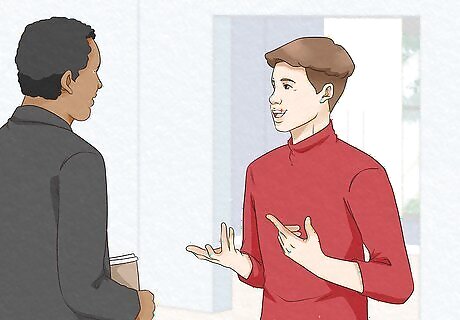
A positive impression can make others assume good things about you. When you form a first impression about someone, you’re going off of the limited information they gave during your first meeting. In a professional or academic setting, first impressions can have a huge impact on your future job opportunities or collaborations. In a private setting, who a person is and what they bring to the table can matter more than a positive first impression. Try to be authentic from the start. Clinical psychologist Dr. Sarah Schewitz says that when dating, first impressions can be a way to ask yourself “If he’s safe, is he kind? Is he the type of person I want to be with?”
Recovering from a Bad First Impression

Accept it and decide whether to take action. Everyone makes mistakes, and you don’t have to please everyone you meet. If the impression you made didn’t seem like a big deal, it may be best to let it go and move on. If you made a bad impression on someone at a party or someone on the street, then maybe the best response is giving no response at all. Ask your friends or the other people who were there what they thought of the interaction. If they didn’t think anything of it, you probably have nothing to worry about. The next time you interact with that person, take a deep breath, smile, and be yourself. Any misunderstandings will smooth over with time.
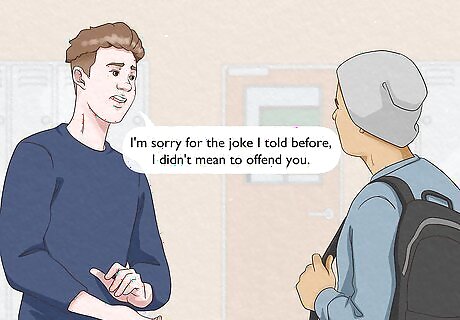
Admit your mistake and apologize if necessary. If you decide to apologize, give a short explanation for why you might have been off your game when you met them. You might say “I’m sorry for the joke I told, and I didn't mean to offend you” or “I’m sorry if I came on too strong, I didn't mean to make you uncomfortable.” Try not to over-apologize for a dicey first meeting—this might put the other person in the uncomfortable position of having to reassure you.

Focus on the future and be consistent over time. Overcoming a bad first impression takes time and consistent positive interactions. Being kind, positive, and fun over time can allow the other person to reinterpret that first interaction as just a blip in the past. To focus on the future, think about how you can do things differently next time you meet someone new. Take time to practice self-care and plan things that can help you feel more positive about yourself.




















Comments
0 comment